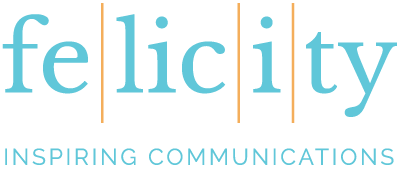This year, I will use my time wisely and work efficiently. It seems this is my resolution every new year, and I suspect the same goes for many others, too. Often, it’s so we can spend more time with family, recharge with alone time, or do more of what we enjoy most.
But then, it seems like I’m adding three more tasks to my to-do list every time I cross one off. Is figuring out how to work smarter an elusive goal? I peruse the myriad of blogs, books and articles to see what the experts say, but much of it is contradictory: should I address e-mails first thing in the morning, or shouldn’t I? Should I address e-mails as they come in, or at a designated time each day?
And quite a few just don’t work for me: I have no interest in getting up any earlier in the morning!
After some research, I picked my favourite tips. These are strategies I found to be simple and easy-to-implement:
One-Minute Rule:
This is a tip I learned from Gretchen Rubin, but it’s one many experts have touted before (see David Allen’s Two-Minute Rule)—if you can complete a task under one minute, address it immediately. We all encounter those pesky chores, the ones that aren’t difficult to complete, but that you put off simply because you can. This seems like a great solution to clearing your mind for the bigger tasks, and also for checking to-dos off your list so you actually feel like you’re being productive—which can often be motivation itself. And if, inevitably, a few of these tasks pile up, Rubin suggests a Power Hour: block off an hour, and get them all done at once.
The Most Important Task First:
A few experts have recommended this concept, but I read about it first here. The idea is: you’ve had your cup of coffee, and you’re ready to tackle the day. Finish the Most Important Task on your list first, and as Leo Babauta says, “the rest of the day is gravy!”
Create New Habits:
Are your New Year’s resolutions already off-track? Try creating a habit instead. Though many experts talk about effective ways of forging and maintaining new habits, my favourite explanation is from web developer Justin Davis. If you have a certain goal, understand what smaller steps (or activities, as Justin calls them) you need to take. For example, he says, if you want to read more books this year, make a habit of reading for even just five minutes per day (or any amount you know you can manage). Track the habit on a calendar or through an app, and you’ll be motivated by the chain of X’s you’re trying not to break. Want to stop a bad habit? You can even track each day you don’t do something, like watch TV or eat sweets.
Keep a Clean Workspace:
This one is pretty self-explanatory, and it is a good reminder for me. Like making your bed every morning, a tidy area is somehow energizing. And you won’t waste time looking for that important piece of paper. Here’s a handy guide to getting started.
Set an End Time:
It almost seems counter-intuitive: if I have the time and energy to continue working, wouldn’t I be more productive in crossing additional tasks off the list? Productivity consultancy Clear Concept Inc. suggests that actually setting a concrete end time to your work day will help you keep distractions to a minimum, and will also help you to prioritize your “must completes.”
What steps are you taking to be more productive, work smarter and create that balance? Tell us in the comments below!

